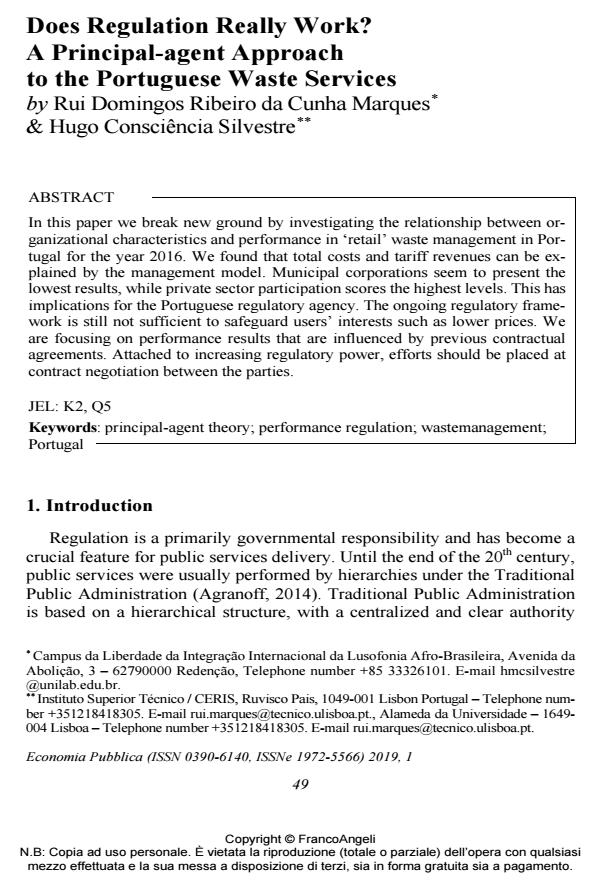Does Regulation Really Work? A Principal-agent Approach to the Portuguese Waste Services
Titolo Rivista ECONOMIA PUBBLICA
Autori/Curatori Rui Domingos Ribeiro da Cunha Marques, Hugo Consciência Silvestre
Anno di pubblicazione 2019 Fascicolo 2019/1
Lingua Inglese Numero pagine 19 P. 49-67 Dimensione file 193 KB
DOI 10.3280/EP2019-001003
Il DOI è il codice a barre della proprietà intellettuale: per saperne di più
clicca qui
Qui sotto puoi vedere in anteprima la prima pagina di questo articolo.
Se questo articolo ti interessa, lo puoi acquistare (e scaricare in formato pdf) seguendo le facili indicazioni per acquistare il download credit. Acquista Download Credits per scaricare questo Articolo in formato PDF

FrancoAngeli è membro della Publishers International Linking Association, Inc (PILA)associazione indipendente e non profit per facilitare (attraverso i servizi tecnologici implementati da CrossRef.org) l’accesso degli studiosi ai contenuti digitali nelle pubblicazioni professionali e scientifiche
In this paper we break new ground by investigating the relationship between organizational characteristics and performance in ‘retail’ waste management in Portugal for the year 2016. We found that total costs and tariff revenues can be explained by the management model. Municipal corporations seem to present the lowest results, while private sector participation scores the highest levels. This has implications for the Portuguese regulatory agency. The ongoing regulatory framework is still not sufficient to safeguard users’ interests such as lower prices. We are focusing on performance results that are influenced by previous contractual agreements. Attached to increasing regulatory power, efforts should be placed at contract negotiation between the parties.
Parole chiave:Principal-agent theory; performance regulation; wastemanagement; Portugal
Jel codes:K2, Q5
Rui Domingos Ribeiro da Cunha Marques, Hugo Consciência Silvestre, Does Regulation Really Work? A Principal-agent Approach to the Portuguese Waste Services in "ECONOMIA PUBBLICA " 1/2019, pp 49-67, DOI: 10.3280/EP2019-001003